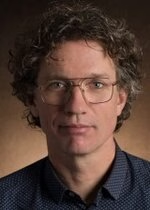The research group Economics aims to make high-quality contributions to important research fields in economics. We do so by producing research papers that have impact, both within and outside academia.
We aim to create an environment for excellence that is constructively critical and allows for risk-taking.
Mission
The Mission of the Economics research programme is to gradually grow to a position where it is among the best schools on the European mainland. Research papers produced by the group provide new theoretical insights, important empirical results, or a mixture of these two. Our research uses and further develops state-of-the-art techniques to address pressing academic questions that are also relevant for society at large.
Research is concentrated in a limited number of areas, including international economics, public economics, and organizational economics.
Programme leaders
Research areas
Organisational Economics
Research revolves around two central themes: the organisation of the decision-making process and organisational aspects of the execution of the work (for example, governance, incentives, recruitment and organisational culture). The theoretical research done in this area is typically inspired by stylized facts and often has a ‘behavioural’ flavour, departing from standard neoclassical preferences. The empirical research performed by the area is mostly field-experimental, where researchers collaborate with organisations to examine behavioural responses to organisational innovations.
International Economics
Research in this area focuses on the causes and consequences of the very unequal welfare distribution across countries, regions, and individuals. It uses both theory and empirics, and revolves around two broad themes: international trade and regional development, and (international) macroeconomics. Specific topics covered by our research are, among others:
- Income and wealth inequality
- Search and matching over the business cycles
- International risk sharing, global value chains
- Economic geography
Public Economics
Research concentrates on the underlying drivers of income and wealth inequality, which increased almost everywhere in the Western world in recent decades. This has fundamental implications for most branches of public policy. The policy economics research area does both economic theory and empirical research. Theoretical work focuses on tax and redistribution policy, monetary policy and trade policy. To identify causal policy effects researchers carry out policy evaluations by analysing natural experiments and conducting field experiments in co-operation with government agencies.
Research quality
The past six years have seen a high scientific impact of the programme. In addition to three publications in the top-5 journals (two in the Journal of Political Economy, one in the Review of Economic Studies), we published 43 papers in top-AIS journals (i.e., journals with an article impact score of 2.2 or higher). With a faculty of about 30 people (excluding PhD students), this amounts to on average one and a half top-AIS publication per person during the assessed six-year period. Top-AIS papers comprise about a third of the total publications in the programme these days, implying that on average each faculty member also produces a nontop- AIS paper every other year. Given the huge increase in competition for journal pages in the economics profession in the last decade, we are proud of these results, but we also see room for further improvement in research productivity in the years to come. A list of key publications of the programme can found on the publication page.
In addition to publications, another form of scientific impact is the placement of PhD students. We have made good progress in this respect in the last few years. For example, Esmee Zwiers landed in a postdoc position at Princeton University, Maria Cotofan is now a postdoc at the London School of Economics and Albert Jan Hummel became a tenure track assistant professor at the University of Amsterdam right out of the PhD.
Grants
The past six years have been very successful in terms of research grants:
- NWO Vidi Grant was awarded to Anne Gielen in 2017, ad did Oliver Marie in 2018
- Two Marie Sklodowska Curie Postdoctoral Fellowships, one for Anna Baiardi in 2018 and one for Renske Stans in 2020
Altogether, close to 2 million euros of grant money was awarded to members of the programme.
Academic journals
Several of the programme members hold editorial positions at academic journals. The most prominent example of that is Dinand Webbink who is a co-editor at Economics of Education Review. Several faculty members hold associate editor positions (Josse Delfgaauw, Robert Dur, Bas Jacobs, Otto Swank, Casper de Vries).
Leveraging international collaboration with other leading groups around the world will primarily be achieved by the organisation of conferences and workshops, academic visits, and by inviting researchers from top-schools for short visiting positions. Such events are also instrumental to bringing doctoral talent in personal contact with leading foreign scholars, e.g. as a preparation for a joint paper and/or a position at a leading school abroad. The department allocates a substantial part of its budget to these knowledge exchange activities and it has already seen how this has led to further intensification of our international research network in the past.
Societal Relevance
A large part of the academic research done in the Economics research programme has direct relevance for stakeholders. Perhaps the best examples of this are the field experiments that Anne Boring, Josse Delfgaauw, Robert Dur and others run together with companies and national and local governments. For instance, in one of these projects, run together with ING Bank, we tested an intervention to encourage households with low wealth to save more. In another field experiment at a large Dutch school for intermediate vocational education, the effects of student evaluations on teachers’ work practices and job satisfaction were examined. Other members of the research programme use administrative data (such as those provided by Statistics Netherlands) to analyse “natural policy experiments” to evaluate the impact of these policies in the tradition of 2021 Nobel prize winner Guido Imbens. Some members work on joint research projects with research staff of a variety of (inter)national policy institutions, such as the CPB, the World Bank or the IMF. Also, the theoretical work performed by members of the programme is, almost without exception, inspired by current pressing issues in society, such as gender discrimination or the effects of minimum wages and tax reforms.
In addition to our impactful academic research, some members of the programme are very active in (international) policy discussions and highly visible in public debates on economic matters. Bas Jacobs is the most prominent example of this. Anne Boring and Anne Gielen have also regularly appeared on television (Nieuwsuur, Eenvandaag, etc) and radio (Radio1, BNR). and in major newspapers, describing the findings of their research for a broad audience. And some of our research (notably that of Aksel Erbahar, Anne Boring and Bas Jacobs) served as a direct input in parliamentary discussions and hearings in the United States, France and the Netherlands on topics related to tax policy, trade policy, and (labour market) discrimination.
Moreover, a substantial part of the dissemination of economics research to policymakers in the Netherlands takes place through events organised by the Royal Dutch Economic Association. Both the former and the current president of this association are a member of the research programme. Robert Dur won the Erasmus School of Economics Societal Impact Award in 2016 for his field experimental research together with the city of Rotterdam.



